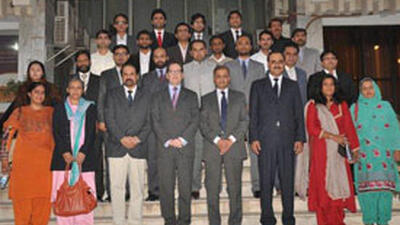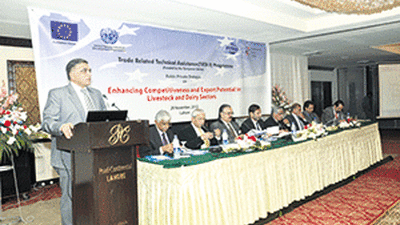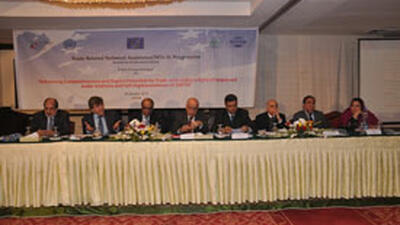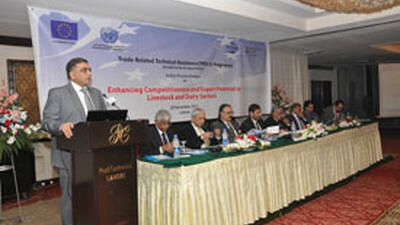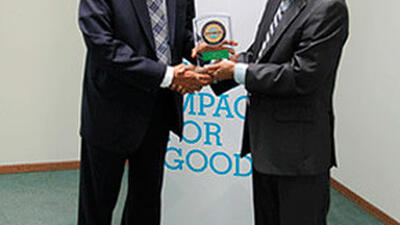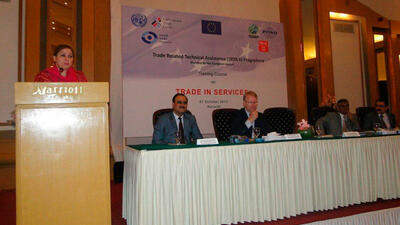Comprender los derechos de la propiedad intelectual para fomentar el comercio en Pakistán (en)
Job opportunities can be created in Pakistan by increasing investment and innovation through a greater knowledge and understanding of intellectual property rights (IPRs) and institutional and legal arrangements for their enforcement. That was the message from Secretary Shujat Ali of Punjab’s Industries, Commerce and Investment Department, at a training course on Trade Related Aspects of Intellectual Property Rights (TRIPS) in Lahore last month.
The two-day course was jointly conducted by the International Trade Centre (ITC) and the Pakistan Institute of Trade and Development (PITAD) as part of a European Union-funded programme to increase the export capacity of Pakistan. The provincial government of the Punjab province helped to organize the training and also shared the costs.
Knowledge about IPRs is often limited in developing countries leading to owners or holders of intellectual property being unwilling to introduce their inventions to domestic markets. As a result, enterprises and citizens often fail to benefit from new techniques and technologies and their countries do not reap the benefits of their inventions or traditional knowledge.
Tahir Maqsood, Director-General, PITAD, said: “Being more aware of the issues relating to intellectual property rights will enable both the public and private sectors to create more jobs and will help businesses, including farmers, to be more profitable. This can happen through ITC’s efforts in institutional capacity building of local training and research organizations, and promoting trade related knowledge on various issues including IPRs.”
Fifty-two government officers and researchers from federal government ministries, implementing agencies, provincial departments, universities, trade associations and research organizations participated in the training to strengthen their understanding of IPRs and domestic laws for their protection.
The training course focused on the role and importance of IPRs in today’s society, IPR protection in national laws, different types of IPRs and the procedures for registering them. Case studies were presented relating to particular issues faced by Pakistan and the TRIPS multilateral agreement. The case studies included the geographical indication (GI) registration of the Pashmina shawl by India, which has been challenged by Pakistan as the Pashmina cloth is made in both the Indian and Pakistani controlled areas of Kashmir. Other case studies included the dispute between India and Pakistan over the registration of Basmati rice and the GI protection of Darjeeling tea.
Participants benefited from the expertise and points of view of stakeholders from four different perspectives: local and international training institutes (PITAD and the World Trade Institute), the public sector (the Intellectual Property Organization of Pakistan) and the private sector (the Pakistan Basmati Growers Association).
Jean Sébastien-Roure, Senior Officer, Business and Trade Policy, ITC, said: “ITC will continue to provide technical assistance to training institutes and TSIs in Pakistan to build their capacity for conducting trade-related training and research to satisfy needs of a wide range of stakeholders.” He highlighted the importance of IPRs as a tool to attract FDIs and transfer of technology.





